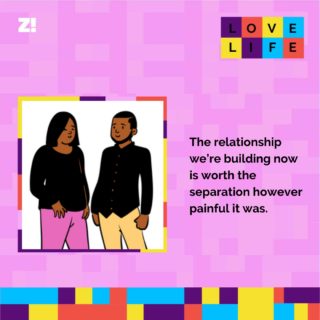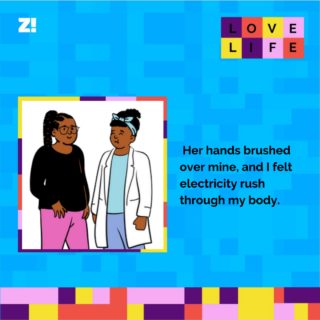Living as a woman in Nigeria is sometimes an unpleasant experience but masculine-presenting women are often faced with violence simply for looking the way they do. In this article, we asked five Nigerian women to share their experiences as masculine-presenting women.
Bimpe, 23
People look down on me for looking the way I do. Members of my extended family message me on social media telling me I am a disgrace to the family because of the way I dress. Last week, my aunty told me again that I looked ugly and I need professional help. These things affect my mental health. I have to constantly remind myself that my existence is valid. My elder brother is the only person in my family who accepts me as I am.
Ada, 18
I am the only girl out of four boys in my family. When I was in primary school, my teachers and classmates called me ‘boy-girl’. Every day, I would tell myself that I won’t play in school or talk to any boy so everybody would think I was becoming more feminine. At home, my mum would call me ‘tom-boy’ whenever she was angry with me. My younger brother would also use it to insult me in the middle of arguments.
Till today, random women walk up to me to tell me to dress more like a lady. One time, I entered a tailor’s shop and a woman said that I was too tall and beautiful to be acting like a man. I don’t even understand what that means.
Jai, 23
At work, one of my bosses once called me a faggot at a staff meeting. He never misses a chance to tell me how uncomfortable I make him. It doesn’t bother me as much as it used to because I don’t work directly with him. Also, I am used to it. My sister said I can’t visit her anymore because she doesn’t think how I dress is normal and she doesn’t want her children around me.
One day, my friends — who are also masculine-presenting — and I went to a bar. While we were waiting for our drinks, a random man came to our table and asked weird questions like, “What are you guys doing here? Why are you dressed like this?” None of us answered him. That must have infuriated him because he started shouting and insulting us. He said just because we were dressed like men doesn’t mean we are men and we can disrespect him. People were watching him do this but no one stood up for us. Eventually, we were asked to leave.
Alex, 25
Being masculine-presenting in Nigeria affects how you interact with your family unit, your friends and the world at large. Growing up was tough. In my secondary school, girls who looked like me were called blokes and we had a set of rules to abide by — much like the larger society. If you failed to play by the rules, you were clowned or beaten. The rules told us how we were supposed to look and what to wear. There was also an amount of pain you had to be able to tolerate.
From time to time, senior girls would send for all blokes in my hostel and punish or beat us for no reason. Growing up like that made me feel like I was wrong for looking the way I did and the world was punishing me for it. I believed that I wasn’t supposed to interact with the rest of the world like everyone else. Till now, I find it difficult to be as social as I would like to be, especially as I have stopped performing femininity. Now that I have come to terms with who I am, I don’t even want to interact with cisheteronormativity. For example, interacting with my neighbours is difficult because I think they have the idea that I am weird and as a result, I avoid them. It is very difficult to find cishet people who understand other experiences outside theirs in real life. I stick to queer spaces, where I am accepted as I am. In such spaces, I find that I am more open, entertaining and jovial. People need to learn that humanity is diverse — there is no one way to be.
Zola, 20
Whenever I am at the mall, people can’t get their eyes off me. This also happens at school. Recently, I was rejected for a job I wanted. It was a receptionist role at a hotel. The day I went there for the interview, the manager shouted at the person that asked me to come. He asked, “what is this? we are looking for women and you are bringing this tomboy here.”. That experience hurt me.
For more women-centred content, click here




